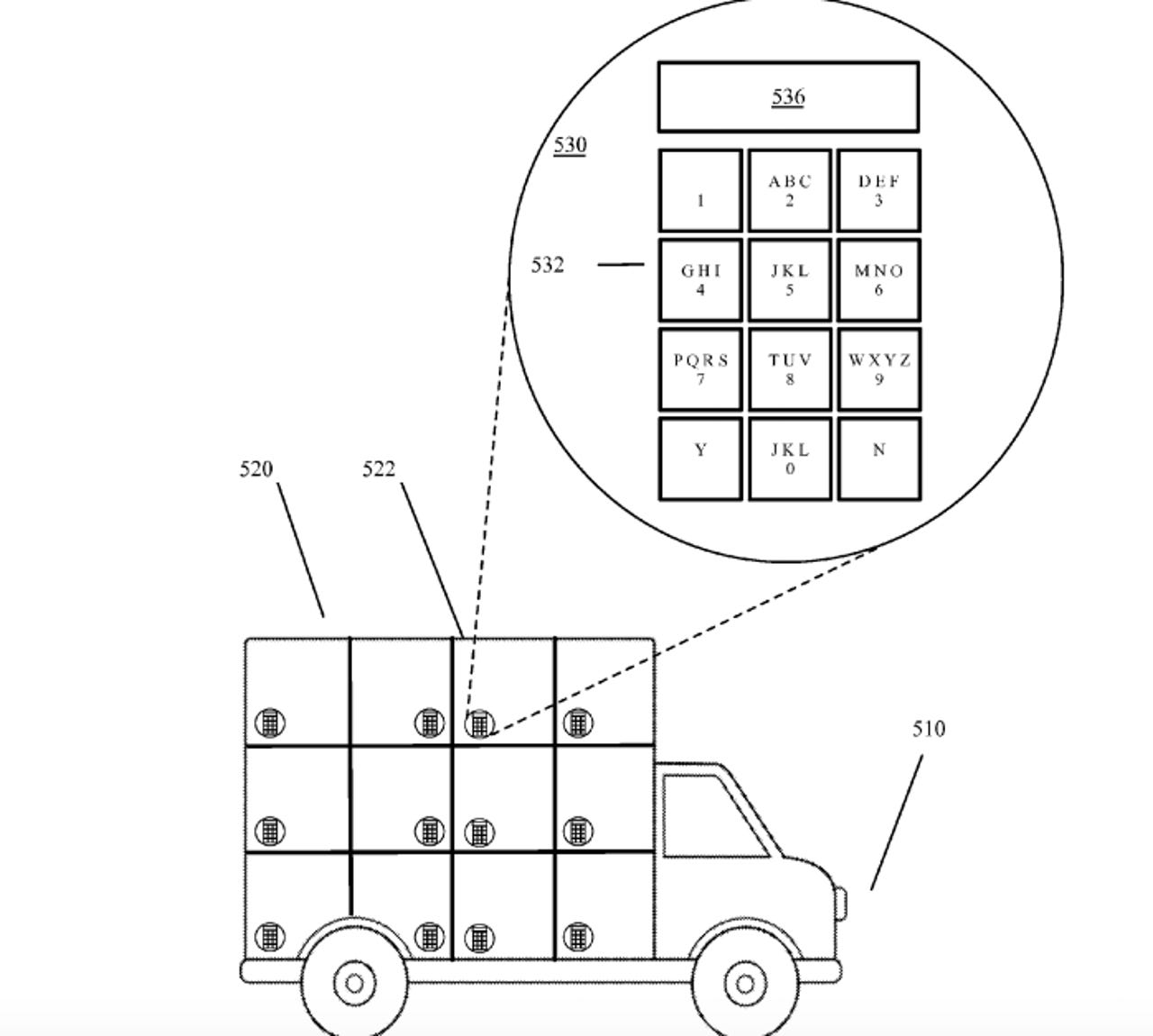Now it's Google's driverless delivery trucks: Patent shows courier services concept


Google's autonomous couriers will have multiple PIN-secured compartments.
Alongside its expanding autonomous vehicle trial, Google has been busy exploring how its technology could be exploited for a last-mile courier service.
Google notes in a newly-issued patent that the two largest US commercial courier services have over 100,000 vehicles between them and that each vehicle requires a driver. But the continued growth in online shopping is creating a need for additional capacity and efficiency in the last mile.
The patent comes amid growing interest in finding new ways to approach the expensive last leg of the journey from factory to customer.
Amazon has explored a range of new methods, including its Prime Air drone delivery service for lightweight packages, as well as a smartphone app that would let customers deliver goods using their cars and even a fully-fledged international courier operation.
Google's 'autonomous delivery platform' patent cuts out the driver entirely, though it's less about autonomous vehicles than how to securely deliver a package to multiple destinations without the aid of a human completing hand-over tasks, such as cash on delivery.
Notably, since the patent's filing in 2013, services like Uber's UberRush courier service have handled this question by integrating with the merchant's checkout process.
In any case, Google's driverless truck would consist of multiple package compartments that house goods to be delivered. Each compartment is secured with PIN pad terminal. Recipients would receive a text message containing a code to unlock the right compartment.
Additionally, the code could only be used once the vehicle has reached a specific location, as determined by the vehicle's positioning system. Alternatively, a destination could be dynamically determined by its proximity to a mobile device with an NFC chip.
Like Uber's human courier system, Google's bot-controlled trucks would also send a text to the recipient alerting them to the parcel's imminent arrival.
The patent does vaguely refer to what Google has been up to on its driverless cars, noting that the vehicle "may use artificial intelligence, sensors and location/positioning technology to drive itself without the active intervention of a human operator".
Reflecting the age of the filing, it also notes that "some autonomous road vehicles have completed over 300,000 miles of testing over a wide range of traffic conditions without a single accident under autonomous operation".
Google's fleet of driverless vehicles have as of January logged a total of 1.4 million miles in autonomous mode since 2009.